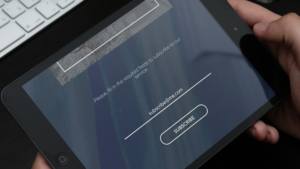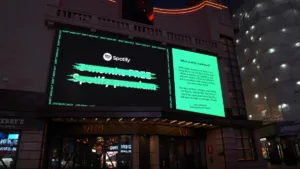If 2020 was the year that the world turned upside-down, 2021 shows no signs of slowing – particularly in the mobile space.
Even as – or perhaps because – we were constricted to our homes during lockdowns our ‘mobiles’ became ever more important. And this has important implications for marketers in what was already a vibrant and growing part of the digital ecosystem.
Recent data from App Annie reveals that last year there was a 10% year-on-year increase in app downloads across iOS and Google Play, with consumers having spent a quarter of their waking time on their mobile devices by the first swathe of lockdowns in April 2020.
Niall Moody, UK Trading Director at Nano Interactive, says: “As mobile usage increases, so does the time spent engaging with brands in apps and on mobile browsers, meaning there’s a huge opportunity for marketers to connect with consumers through targeted advertising.
“To maximise this, brands will need to find new ways to tap into the value of those precious moments of interaction with consumers, moving beyond reach to creating more meaningful moments of engagement such as search intent signals.”
AdColony Senior Director of Global Marketing and Communications Jonathan Harrop points particularly to the explodiion of mobile gaming and app downloads as the pandemic took hold.
“To see why 2021 is going to be huge for mobile, we must look at what 2020 was. Globally, app downloads were up every quarter of the year compared to 2019, according to Sensor Tower and App Annie. Mobile games were up 20% quarter-over-quarter. Considering most of the world was in some form of lockdown/quarantine or another, that’s remarkable.”
It surveyed consumers globally directly last year and saw a 50% growth in mobile usage compared to pre-COVID times, including a 23% growth in new smartphone gaming activity.
He continues: “Even after this is ‘over’, for a lot of the ways consumers interact with brands, things won’t go back to the way they were. How many people who would never have thought to have groceries delivered are never going back to the store for orange juice? A lot.
“Curbside pickup is here to stay. App-based ordering and QR-code menus are here to stay. Embrace the change, experiment, and dive into channels that weren’t on your radar at the start of 2020. For those that do, 2021 will be an opportunity to emerge smarter and stronger than ever.”
Perhaps almost counter-intuitively, mobile data has become even more important, particularly as a way for marketers to keep pace with rapidly changing and fluctuating behaviour.
Mobsta Managing Director Matt Longley says: “We realised quite quickly that, with the travel restrictions in place, we needed to reinforce more than ever that location data has value for building audiences not just targeting people because they’re outside a store but also based on where they frequently go and where they live.”
Part of their challenge was in quickly building insights to demonstrate what its audiences were doing while at home, changing their behaviour both physically and digitally with changes in content consumption.
“We could also leverage our data to show how quickly people returned to high streets and stores once restrictions loosened each lockdown: did people’s lives become more local for example?”
He says the pandemic has also forced advertisers away from “really niche” targeting to audience targeting. “That’s important because some of the briefs we get were basically where and advertiser wants to find one person out of 200,000, who might be doing this on this specific day at this specific time this specific place. And that’s not sustainable.”
Grant Allaway, CEO of AudienceQ believes that mobile is poised for a huge year, particularly as life returns to somewhere near normal.
“Once we get out of the current cycles of lockdown, 2021 could well set mobile apart, as some kind of normality hopefully returns to our lives. Months of pent up frustration is likely to lead to a massive explosion of activity, events, purchasing and consumption.”
Of particular excitement to him is geo-location based advertising. “Although the pandemic has impacted the geo-location based advertising world, lockdown leading to fewer real life actions and events, the explosion in smartphone usage over the last nine months has opened the door to many more opportunities for the advertiser,” he concludes.
Kochava CEO and founder Charles Manning believes that the pandemic has forced every part of the mobile ecosystem – operators, agencies, ad tech vendors and advertisers – to be more future-looking, flexible and brave. He says that companies who can respond to change at scale and speed will do well, be that as a way out of unprecedented pandemics or other external factors such as increased regulations or operating system changes.
“The idea that in this age of COVID, that we had so much change, but yet we still grew and we were still profitable is just amazing,” he says. “I think it is kind of seeing the tea leaves before they happen.”









